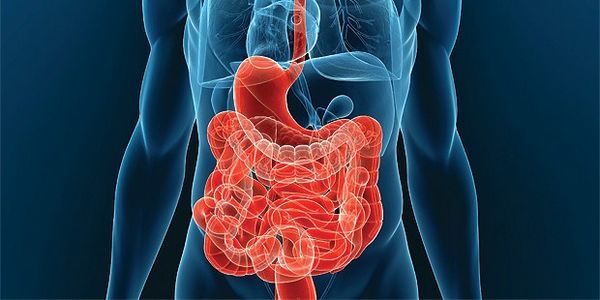Chronic enterocolitis – treatment of disease. Symptoms and prevention of the disease Chronic enterocolitis

Chronic enterocolitis – What is this disease? Enterocolitis is an infectious or non-infectious inflammation of the small and large intestine. Chronic enterocolitis is often the result of inadequate treatment of acute inflammation of the intestine.
The disease is prolonged, alternating periods of exacerbation and remission.
Chronic enterocolitis – The cause of the
Chronic enterocolitis, usually, develops after the acute inflammation. The transition of acute to chronic enterocolitis is associated with the wrong treatment acute process, reactive properties of the organism. Chronic enterocolitis may be the result of abuse of alcoholic beverages, long rough, Quickie, spicy food, helminthic infestation, abuse of drugs (codeine, pheasant's eye), chronic intoxications industrial substances (mercury, arsenic, lead).
In case of insufficient pancreatic function, gall bladder, stomach, liver, chronic enteritis occurs due to irritation of the intestinal wall neperevarennymi food, absence of bactericidal action of hydrochloric acid.
A significant role in the occurrence of chronic enterocolitis belongs to bowel bacteria overgrowth syndrome is disruption of the normal microflora.
Symptoms of chronic enterocolitis
Chronic enterocolitis can proceed with as malovyrazhennoj clinical picture in the early stages of the disease, and pretty hard, with the development of serious complications.
For exacerbation of chronic enterocolitis characterized by following symptoms:
- • abdominal pain (usually in the area of the navel, but it could be spilled). More prevalent occurrence of pain in the afternoon, but there may be early pain. The severity of pain depends on the severity of the inflammatory process. When primary localization of pathological process in the small intestine pain moderate, blunt. Inflammation of the colon is manifested an intense pain, that amplified before stool problems, After a couple of hours after eating, during physical exercise, fast walking, jumping, run;
- • disorder of defecation is diarrhea or constipation, their striping;
- • flatulence (abdominal distention);
- • dyspeptic syndrome;
- • astenovegetativei-syndrome with prolonged course of enterocolitis due to violation of the woven Exchange, manifest weakness, slackness, fatigue;
- • reduction of body weight-in priority the defeat of the small intestine.
Chronic enterocolitis – Diagnostics
Diagnosis of chronic enterocolitis is based on anamnestic data, poll, a physical examination, results of laboratory and instrumental examination.
The most informative diagnostic method enterocolitis with the defeat of predominantly thick intestine-colonoscopy with biopsy.
When x-ray study detected change of intestine, structure, Wall defects.
When the laboratory study identified anemia, dyslipidaemia, desproteinemia, violation of the Ionic balance. In analyzing the qal'a-increased blood, mucus, There might be steatorrhea, kreatoreya, amiloreja.
Chronic enterocolitis – Classification
Depending on the cause of enterocolitis classified:
- Bacterial (nonspecific-arise after the Suppression of bacterial infection, specific-salmonellosis, dysenteries);
- parasitic (as a result of the defeat of amebami, helminths, trixomonadami);
- toxic (defeat drugs, Poisons, caustic chemicals);
- alimentarnye (improper nutrition);
- mechanical (as a result of prolonged and frequent constipation);
- secondary (as a complication of other diseases of the digestive system).
Chronic enterocolitis – Actions of the patient
If you experience symptoms of the disease should consult a gastroenterologist.
Treatment of chronic enterocolitis
It is necessary to normalize the treatment and nutrition, Cancel medicines, promoting bowel malfunction, eliminate bacterial or parasitic infection.
When primary localization of inflammation in the small intestine recommended diet, rich in vitamins, protein and microelements, with high content of calcium, exception of irritating mucous membrane components (fried, acute, salty, sour).
Medicamental therapy:
- • antibacterial agents to suppress abnormal flora;
- • enzymes to restore normal digestion of food (mezim etc);
- • Probiotics (lacto-, bifido-, enterobacteria), such as bifidumbacterin, etc., Prebiotics (lactulose);
- • Tools, that normalizes intestinal peristalsis (mebeverine).
Recommended physiotherapy, which may include procedures for cleansing the bowel, sinusoidal modulated currents, magnetic therapy, different types of reflexotherapy etc.
A good result in remission in terms of improving the general condition of the, improve the quality of life, consolidate the response gives the sanatorium-and-spa treatment in balneological resorts.
During times of increased physical activity should be reduced. During periods of remission recommended therapeutic physical training, aerobics, walks. Active lifestyle helps to improve the psychological status, normalize digestion.
Chronic enterocolitis – Complications
In the long-term existence of the process develop destructive changes of mucous membrane, captured submucosal layers intestinal wall.
Chronic enterocolitis causing persistent violations of the functional characteristics of the bowel, dyspepsia.
Prevention of chronic enterocolitis
Prevention of intestinal diseases includes the timely treatment of infections, parasitic diseases, a healthy balanced diet, the use of drugs is strictly according to, adequate measures of therapy of diseases of the gastrointestinal tract.
